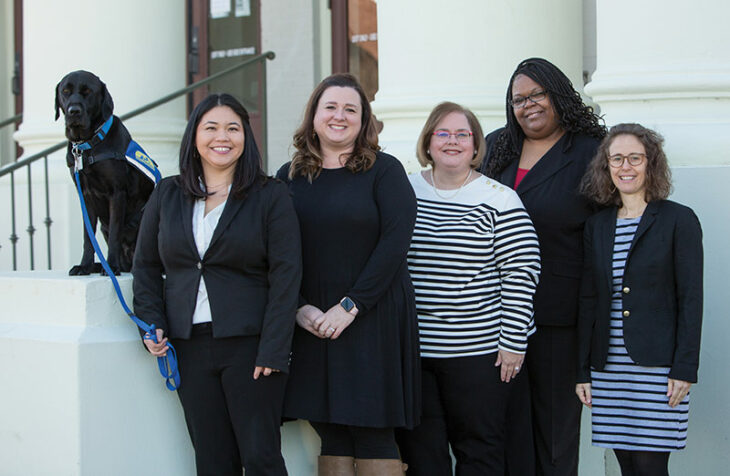Cynthia Chauvin, executive director of CASA of Hancock County, shares how her organization advocates for children in the court system — supporting them, acting in their best interest and ensuring their wellbeing.
WHAT DOES CASA DO?
CASA of Hancock County is a nonprofit that recruits, trains and supports a diverse network of court-appointed special advocate volunteers to provide quality advocacy in the Hancock County court system to abused and neglected children and to secure them a safe, permanent, and nurturing home. Children living in Hancock County who are abuse and neglect victims and have involvement with Youth Court and the Department of Human Services are eligible for CASA advocacy.
CASA volunteers investigate cases, evaluate information and submit reports to the court with recommendations in the child’s best interest. The volunteer monitors the case until the court approves a permanent plan or the child exits the foster care and court systems. The result is that children with CASA advocates have fewer foster care placements and achieve a permanent plan in less time.
WHEN AND WHY WAS CASA FOUNDED?
Judge David Soukup founded CASA in King County, Washington, in 1976. He felt an independent party would be beneficial to the court process. With most volunteers serving one child or family, they can provide the court with in-depth knowledge of the child’s case, which aids in decision making on these complicated cases.
In the first quarter of 2021, 94 percent of the recommendations offered by CASA volunteers in Hancock County were ordered by Youth Court Judge S. Trent Favre.
WHAT IMPACT HAS CASA MADE ON THE COMMUNITY?
CASA volunteers form lasting relationships with the children they serve, for whom instability and uncertainty are commonplace. The volunteers are stable and positive influences and advocate for the children’s best interests.
CASA believes in restoring families and works closely with the biological parents and Child Protective Services to support that process. However, at times, children can’t be returned home, and the volunteer remains focused on the child’s safety and need for permanency, keeping in mind that foster care should be temporary and that all children need families. CASA volunteers help to break the cycle of generational child abuse.
WHAT HAS BEEN THE GREATEST THING YOU HAVE LEARNED OR GAINED BY BEING INVOLVED IN CASA?
As the leader of this organization, I continue to be humbled by our volunteers’ dedication to their children. They stand in the gap when these kids need a caring adult more than ever. I have been able to work for CASA for 20 years, despite countless cases of abuse and neglect, because I see firsthand how the volunteers ensure that these children are better off. Being a part of CASA has made me a better family member, friend and community member.
WHAT’S NEW WITH CASA?
In August of 2020, CASA of Hancock County welcomed its newest staff member, Canine Companions for Independence facility dog Remi, who provides a calming presence and an extra layer of support to child victims who find themselves involved in Hancock County’s child welfare system. Remi will assist handler Naomi Strawhorn during her work as the victim services coordinator by accompanying children to court to help lessen their stress.
Recent and upcoming events for us include our volunteer training session in mid-August. On Oct. 16, CASA will hold its community give-back event, Touch a Truck, on the grounds of the Hancock County Government Annex on Highway 90. This free event attracts over 750 children each year to explore and learn about vocations within our community.
Plans also are also under way for our largest fundraiser of the year, the Krewe of CASA Mardi Gras Gala, set for Jan. 22. This event could not occur this year due to COVID, so the 2022 event will be our biggest yet.


